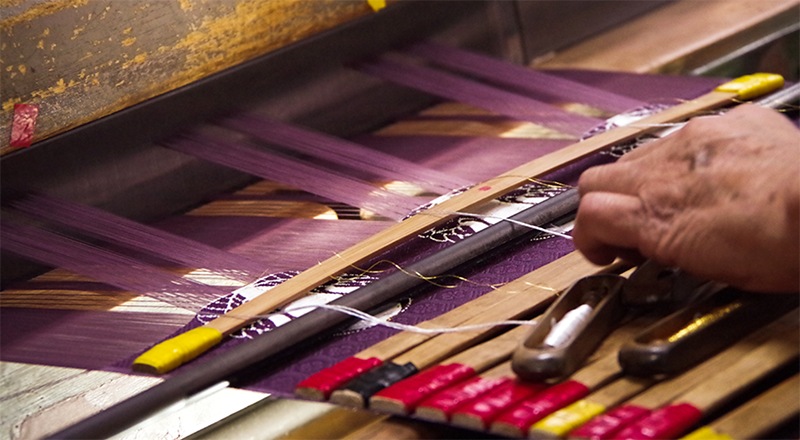
Traditional Crafts,
Artisanship
- HOME
- Traditional Crafts, Artisanship
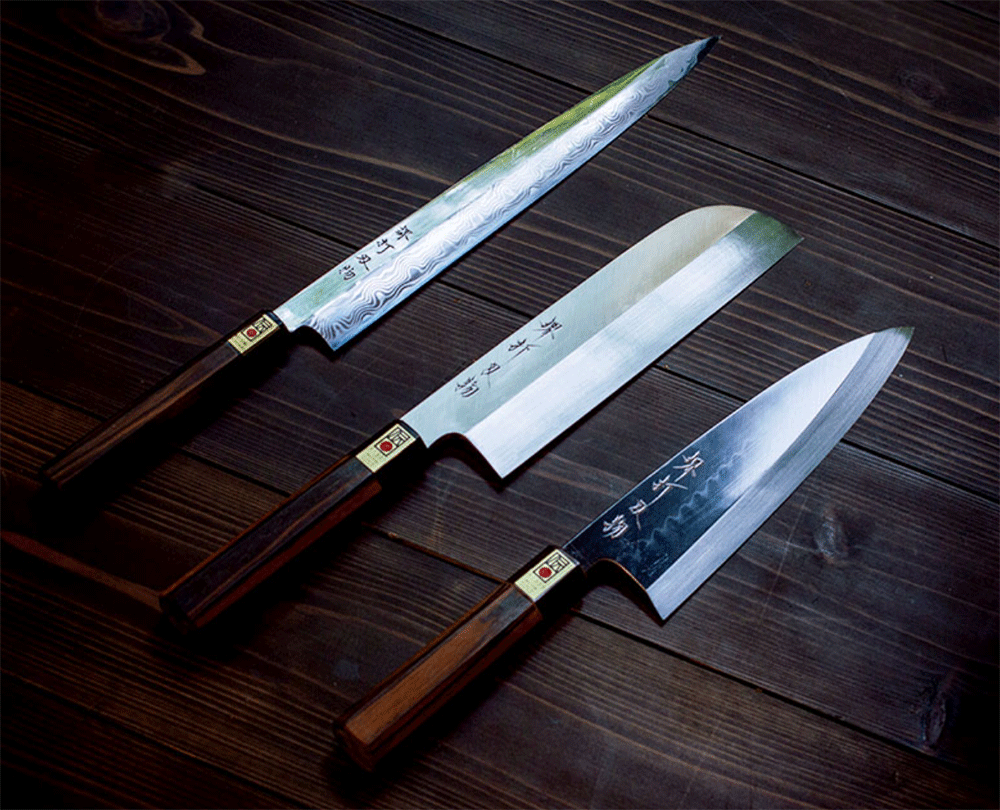
Kansai: A Treasure Trove of Traditional Crafts
Traditional crafts, each with its own distinct character and deep historical roots, can be found across Japan. From textiles and dyeing to ceramics, lacquerware, metalwork, woodworking, stationery and "washi" Japanese paper, these crafts are cherished both domestically and by visitors from around the world. Beyond traditional crafts, Japan's advanced artisan techniques continue to earn global admiration.
The Japanese government has established a system for designating certain types of production as "traditional crafts" under specific criteria, including being used in daily life, handmade and primarily crafted from traditional materials. There are over 200 designated traditional crafts across the country, with at least one in each of Japan's 47 prefectures, from Hokkaido in the north to Okinawa in the south.
From ancient times, the Kansai region was home to Japan's capital, variously located in present-day Osaka, Nara and Kyoto. It has a long history of continuous development as a political, economic and cultural hub. Reflecting this rich heritage, Kansai is renowned for its world-famous forms of artisan work, many of which are designated by the central government as traditional crafts. The techniques used in these crafts later contributed to the development of industrial manufacturing. Today, many manufacturers across the region use this craftsmanship to produce a wide range of goods, from home appliances and high-precision machine parts to textiles and wood products.
This section showcases companies specializing in traditional crafts and those renowned for their exceptional artisan techniques. We encourage you to immerse yourself in the captivating world of traditional crafts that Kansai is proud to offer.
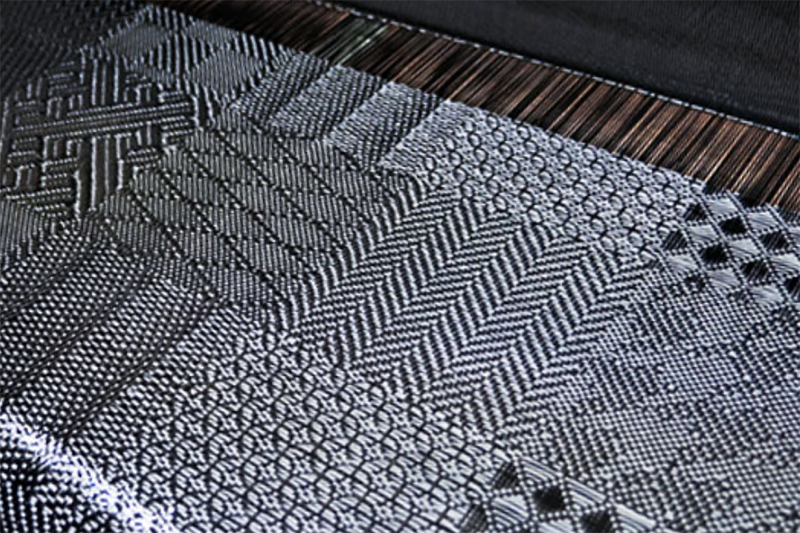
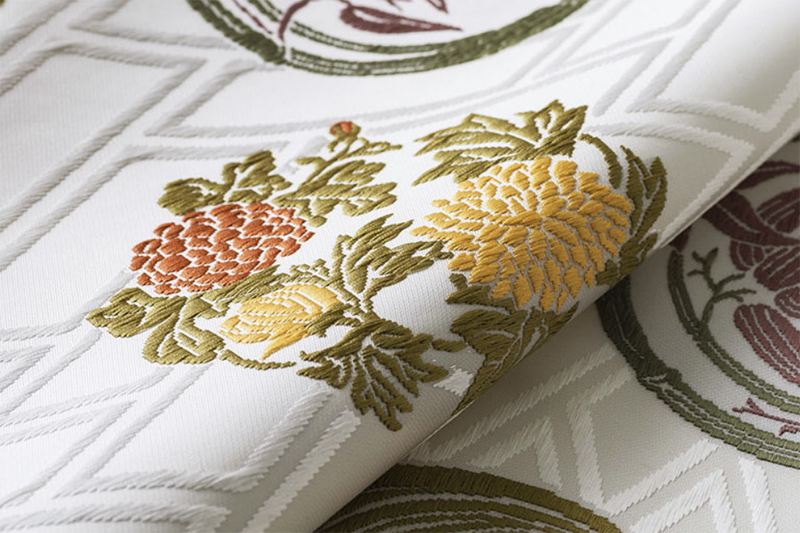

COMPANY LIST Listings:11
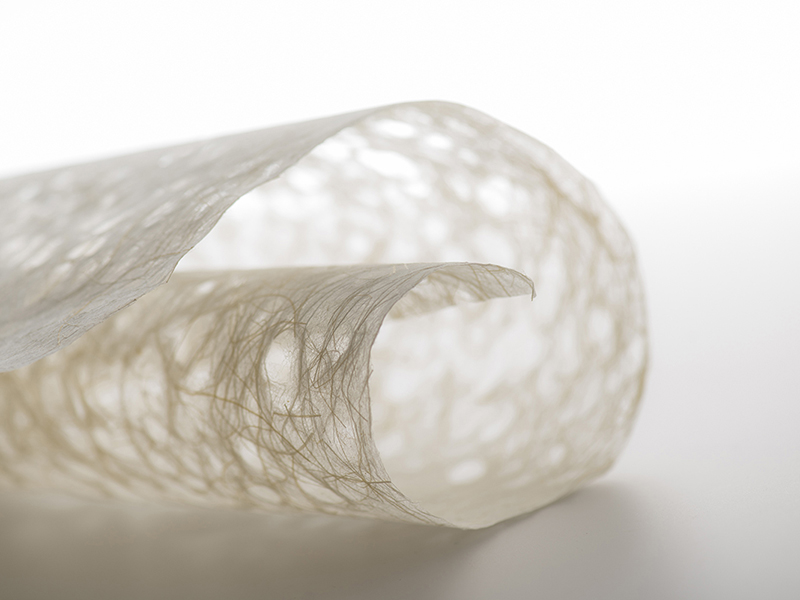
Awagami Factory
Tokushima Prefecture
141 Kawahigashi, Yamakawa-cho, Yoshinogawa, Tokushima Prefecture, 779-3401

Traditional Crafts, Artisanship
Awagami Factory Tokushima Prefecture https://awagami.com/

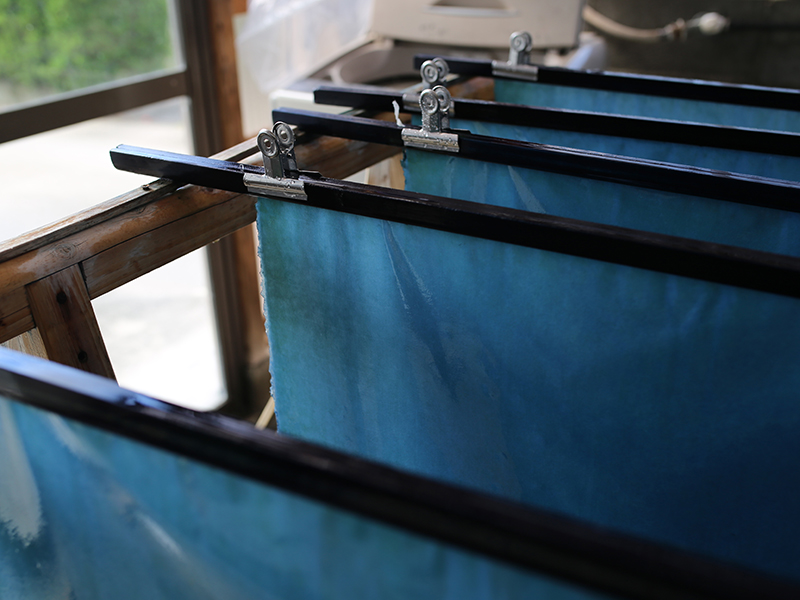
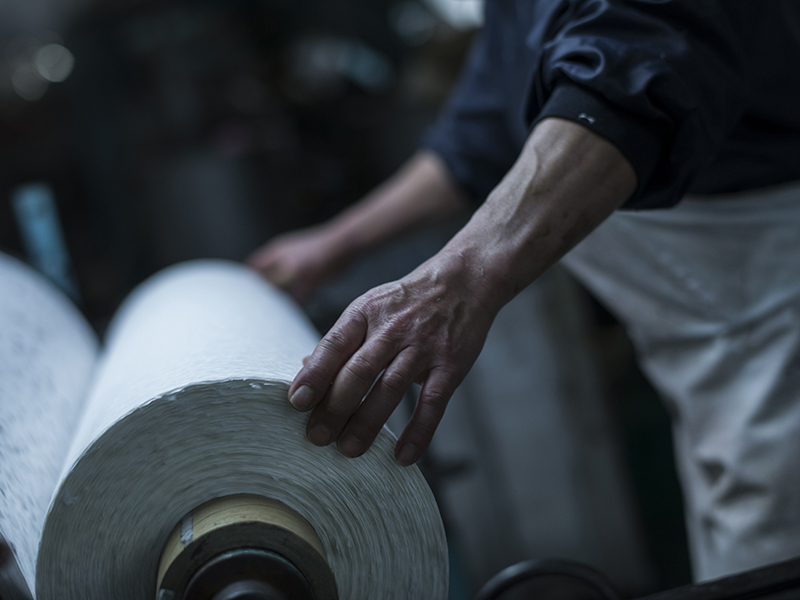
Awagami Factory, a general incorporated foundation, strives to produce Japanese paper that offers a fresh, modern appeal while preserving traditional techniques.
The name "Awagami" represents a collective brand of "Awa Washi" paper, which boasts a history of 1,300 years in Yoshinogawa, Tokushima Prefecture. Originally, Awa Washi paper is said to have started when the Inbe family cultivated hemp and "kozo" paper mulberry trees in Oe, the former name of Yoshinogawa, and handed down techniques for weaving cloth and manufacturing paper. The city has long preserved a tradition of receiving fibers as natural blessings and using these as tools in religious services.
Today, in the spirit of preserving and passing on the traditional culture of washi paper, Awagami Factory, as a producer of new materials, is seeking to move washi paper beyond the world of tradition and is engaged in research to develop a variety of techniques and materials. It aims to serve as a new base for communicating washi paper culture by listening to users' voices and utilizing their feedback for modern living spaces and the next generation.
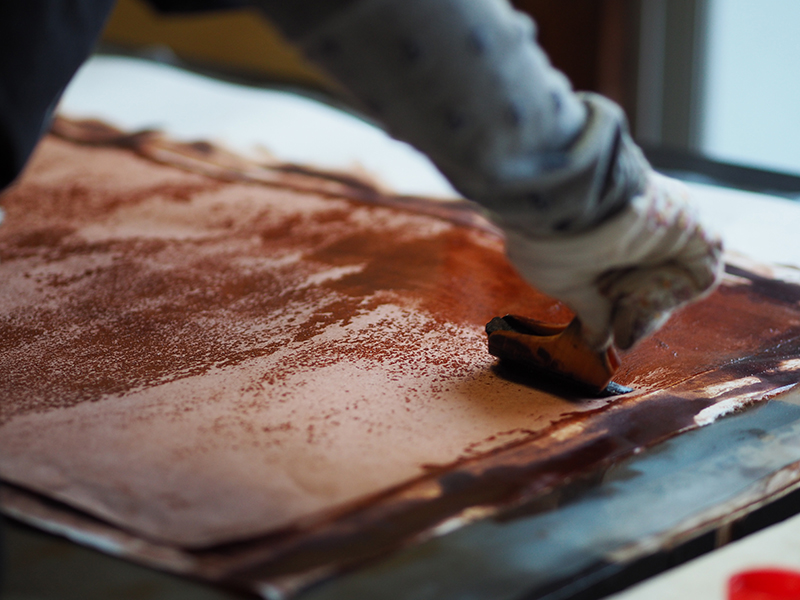
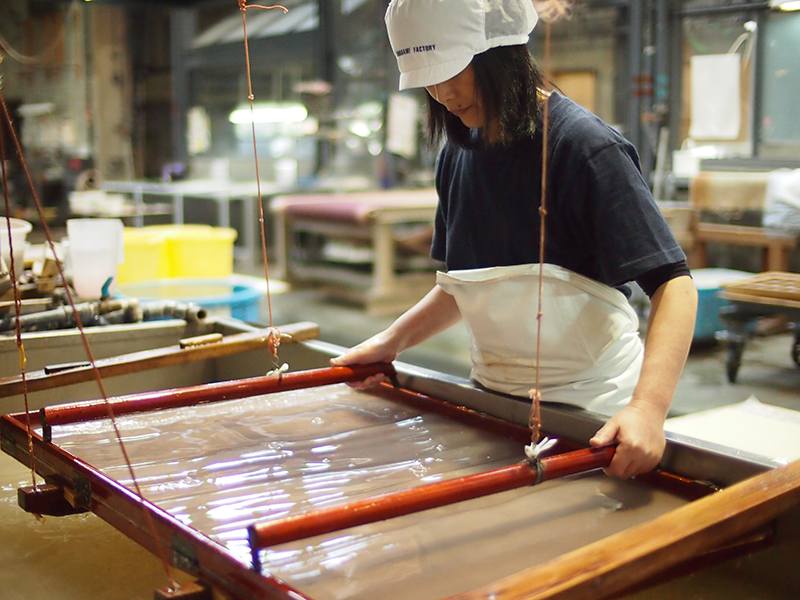
Tour Location
About an hour's drive from Tokushima Airport
About 45 minutes' drive from Takamatsu Airport
(If a national holiday falls on a Monday, the following Tuesday will be a non-business day.)
Availability of Company Tours
Contact Information
Awagami Factory
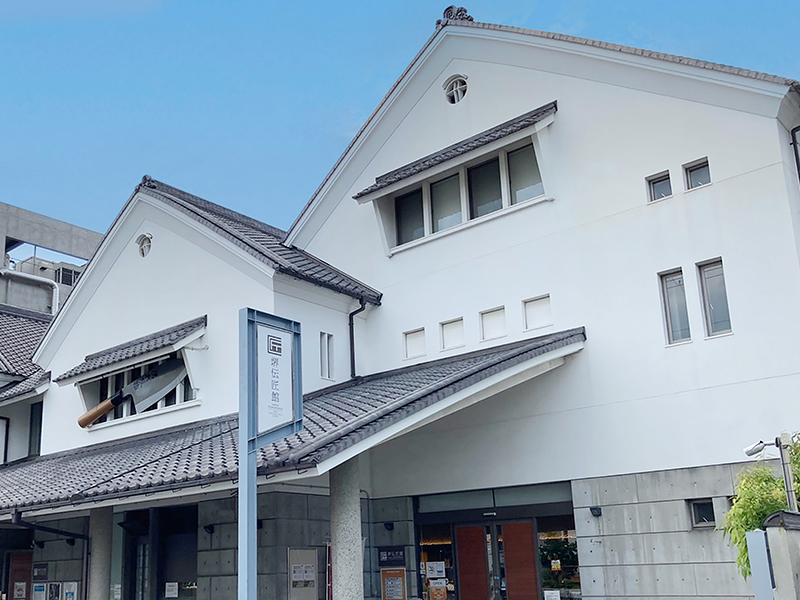
SAKAI TRADITIONAL CRAFTS MUSEUM
Sakai
1-1-30 Zaimokucho-nishi, Sakai Ward, Sakai, Osaka Prefecture, 590-0941

Traditional Crafts, Artisanship
SAKAI TRADITIONAL CRAFTS MUSEUM Sakai https://www.sakaidensan.jp/en/

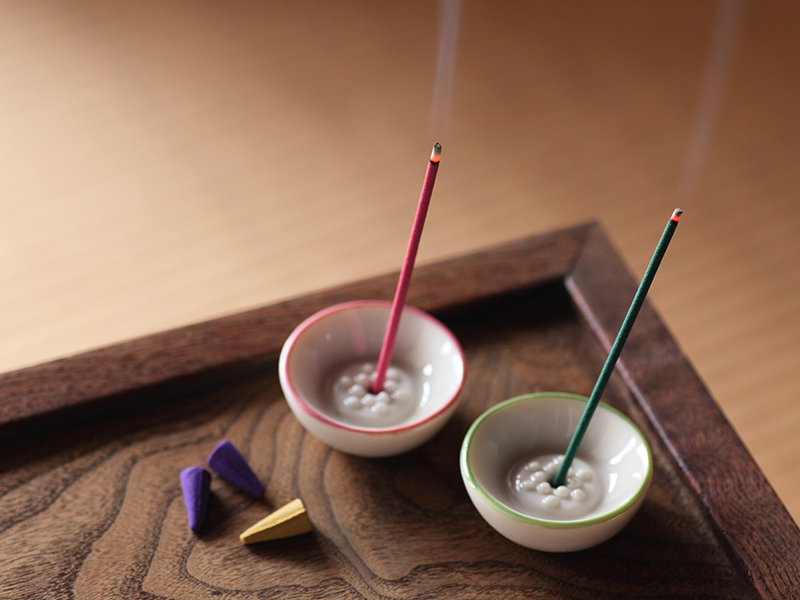
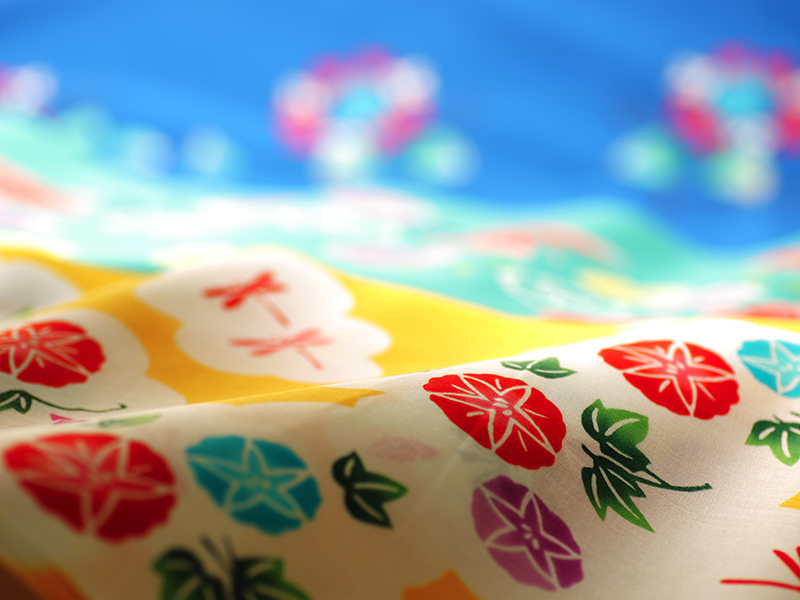
SAKAI TRADITIONAL CRAFTS MUSEUM exhibits and sells products from traditional industries in Sakai and also offers related experiences. On the first floor, items for sale include kitchen knives, "chusen" dyeing hand towels, incense sticks, kelp and Japanese sweets. On the second floor, at the Sakai Knife Museum “CUT”, visitors can learn about the history and manufacturing process of Sakai-made kitchen knives, with a wide variety of knives on display. There is also a chandelier called HIBANA, made of the materials of about 300 knives. Furthermore, there is the TAKUMI EXHIBITION, which showcases the history of Sakai traditional industries and tools, excluding knives. This space also hosts events and workshops regularly.
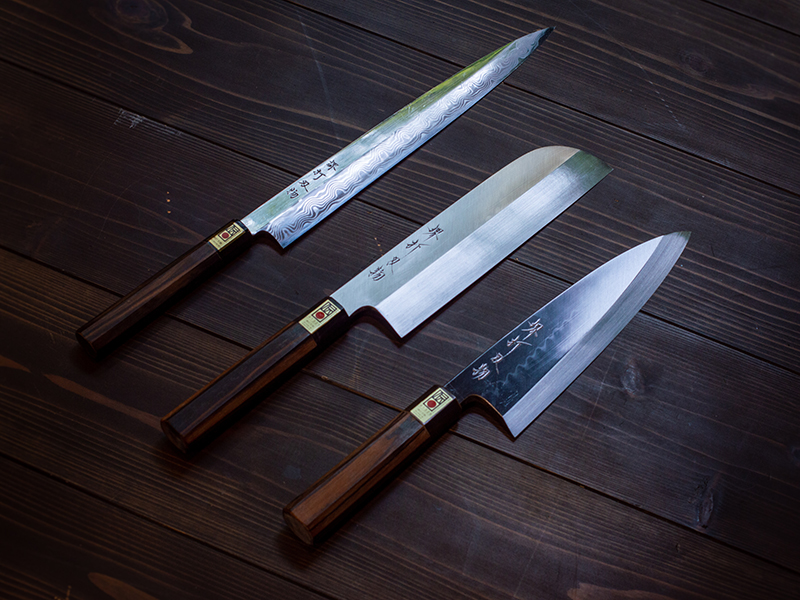
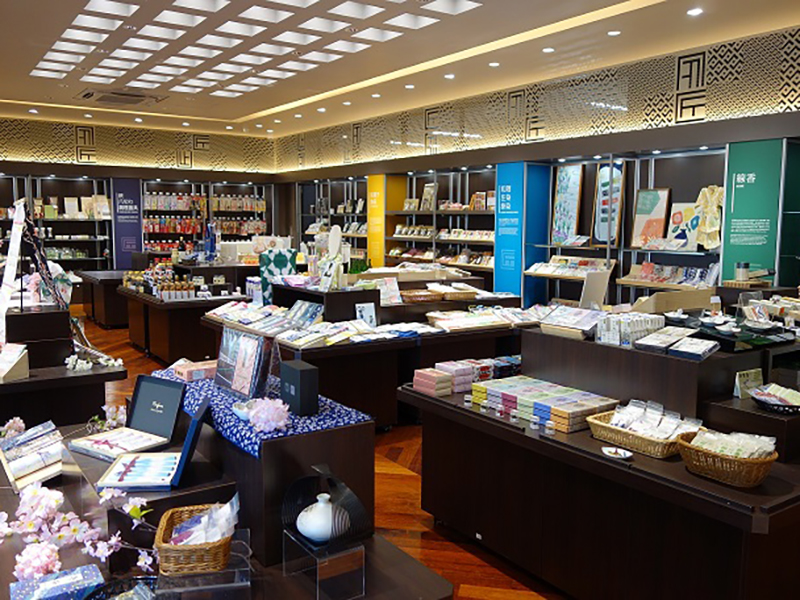
Tour Location
About 15 minutes' walk from Nankai Electric Railway's Sakai Station
About 30 minutes' drive from Kansai International Airport
Availability of Company Tours
Contact Information
Deputy Director Aiko Tsukamoto
Special Note
For English or French-speaking visitors : Reservations are required.
Online shopping from overseas is available. https://shop.buyee.jp/47storey/shopping/store/top/a0000449?&brandCode=partner.47storey.osaka

Tsutsumi Asakichi Urushi inc.
City of Kyoto
540 Inari-cho, Matsubara-agaru, Ainomachi-dori, Shomogyo Ward, Kyoto, Kyoto Prefecture, 600-8098

Traditional Crafts, Artisanship
Tsutsumi Asakichi Urushi inc. City of Kyoto https://www.tsutsumi-urushi.com/en

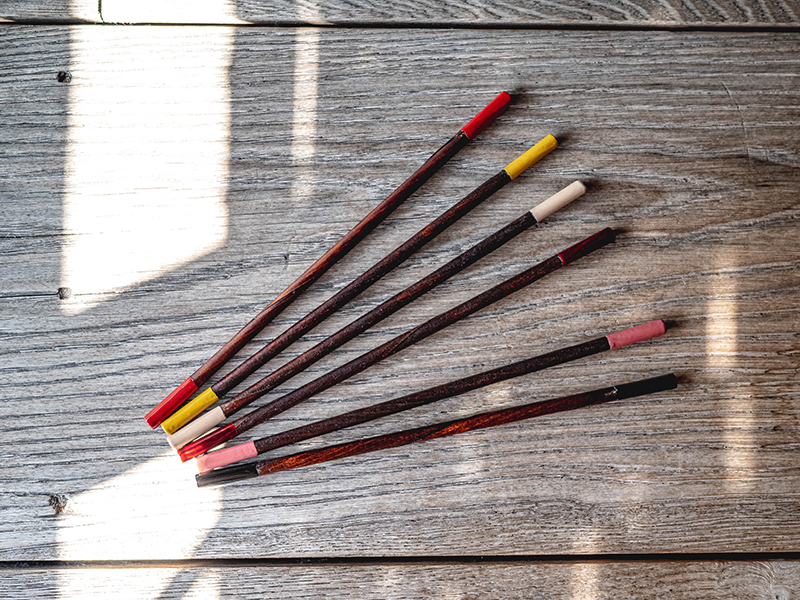
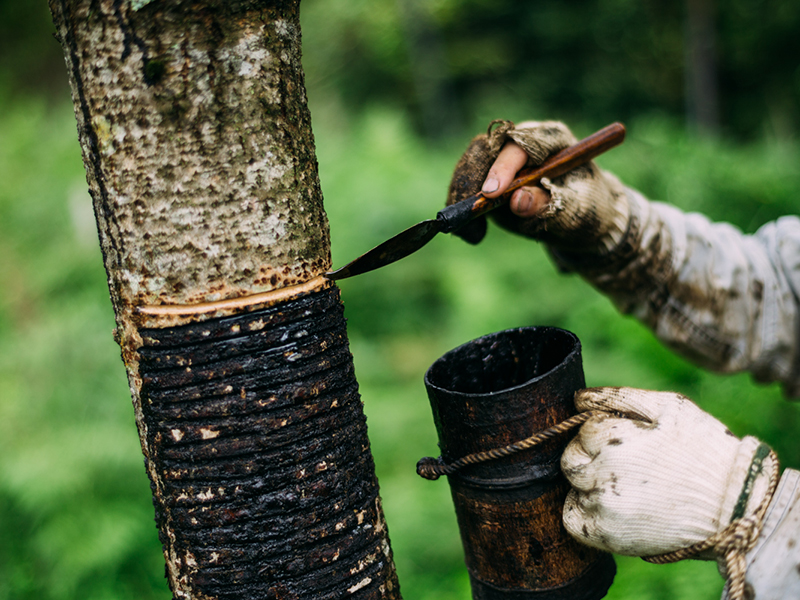
Founded in 1909, Tsutsumi Asakichi Urushi inc. is an "urushi" lacquer maker. Urushi is a valuable natural resource because only about 200 milliliters of it can be collected from a single tree. After the trees from which sap has been collected are cut down, it takes 10 to 15 years to grow new trees from the stumps and then sap is collected from them. Urushi is a sustainable natural resource that has maintained this cycle since the Jomon period. It is used not only for everyday necessities such as bowls, tea utensils, and furniture but also in temples and shrines.
Alarmed by a sharp fall in urushi demand amid mass production and disposal, the company is engaged in activities to promote the charm of urushi. It is also working on projects to improve the environment and explore new possibilities and values for urushi such as "URUSHI×SURF" and "URUSHI×BMX," with Tsutsumi Asakichi Urushi opening "Und." as a base for these activities in April 2024. While focusing on operations as a urushi maker, the company is determined to play a role in creating new innovation through urushi in cooperation with other industries and materials makers, as well as with local communities, governments, universities and research institutes, and passing on urushi to the next generation.
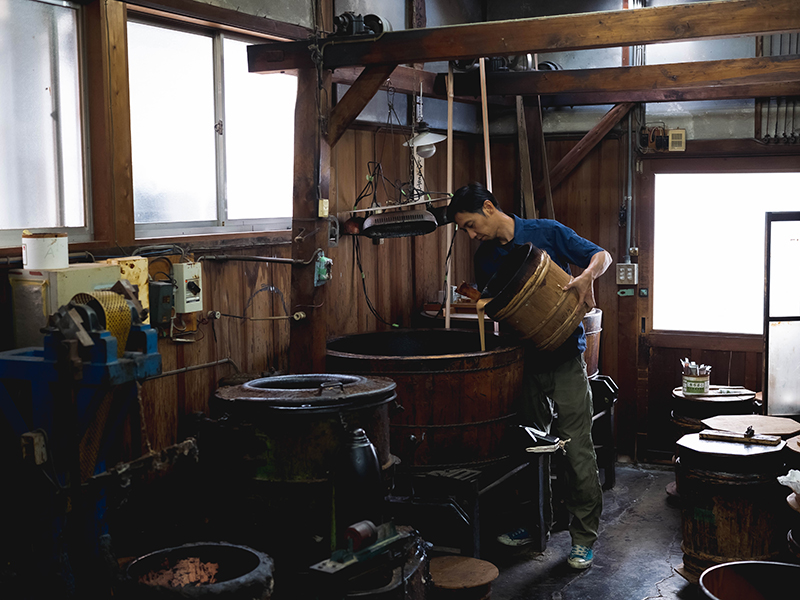
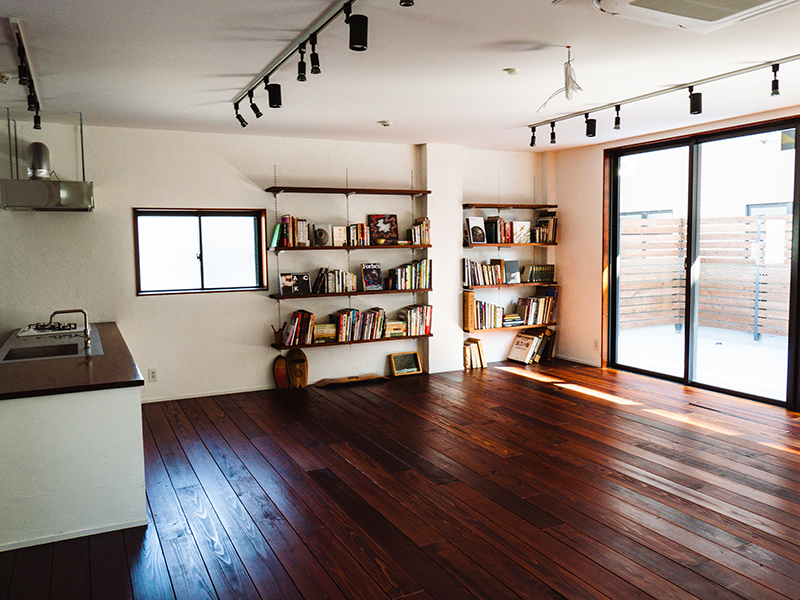
Tour Location
About 10 minutes' drive from Kyoto Station
About 1 hour's drive from Osaka International Airport (Itami Airport)
Shop is off on Mondays. Please inquire about tours.
Availability of Company Tours
Contact Information
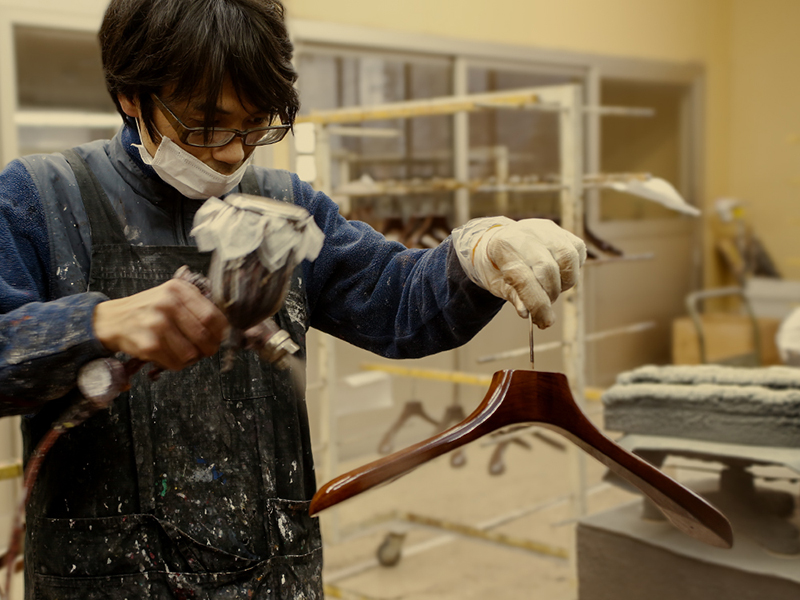
NAKATA KOGEI Co., Ltd.
Hyogo Prefecture
92 Ebara, Hidaka-cho, Toyooka, Hyogo Prefecture, 669-5301

Traditional Crafts, Artisanship
NAKATA KOGEI Co., Ltd. Hyogo Prefecture https://www.nakatahanger.com/en/

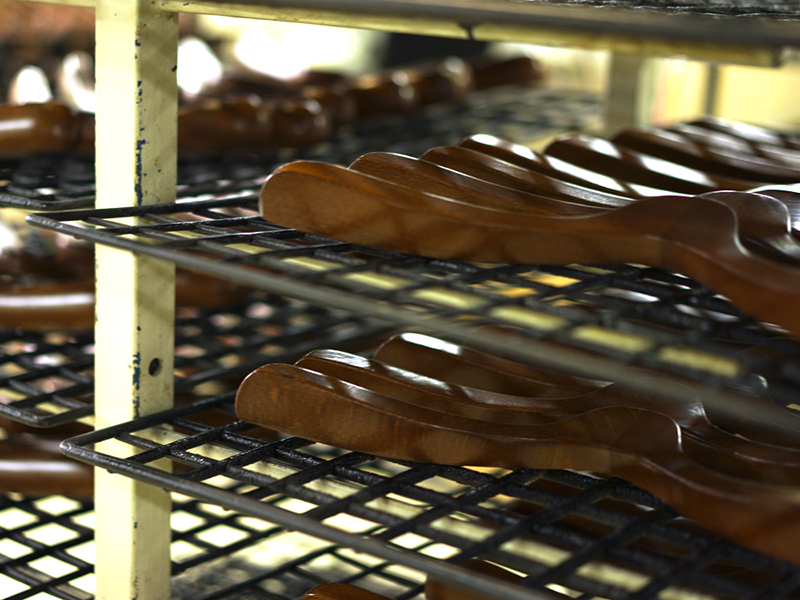
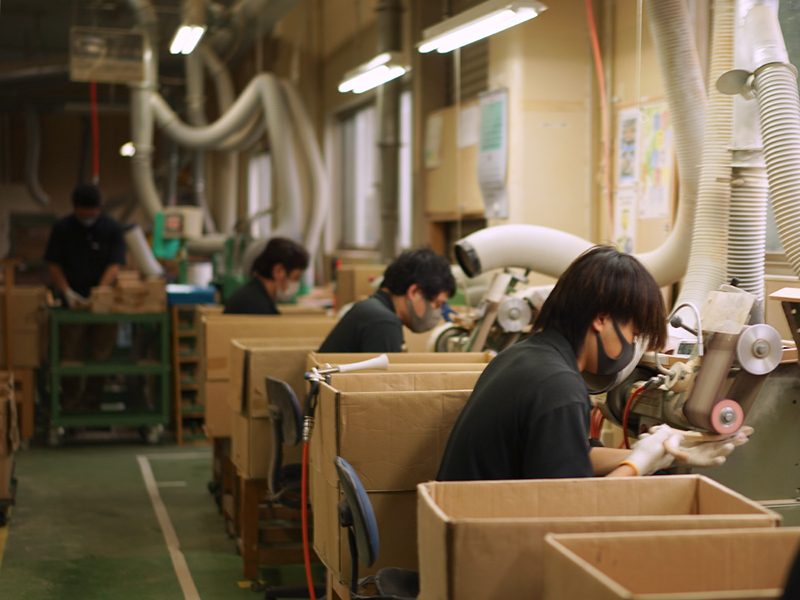
Since its founding in 1946, NAKATA KOGEI Co., Ltd. is the only maker in Japan specializing in wooden hangers that has continued to meet the extremely high demands of Japanese apparel companies. A NAKATA HANGER product is made from the user's perspective and with the skills, knowledge and experience that the company has accumulated over many years. Each hanger is made by craftsmen, with a sophisticated design and the function to keep clothes in good shape. NAKATA HANGER has been supplied to customers in over 50 countries. It is also used in industries from railways and automobiles to sports. The company is exploring new possibilities, but its sincere approach to making hangers has not changed. NAKATA KOGEI pursues the values that its customers want, aiming to deliver "pleasure from wearing clothes."
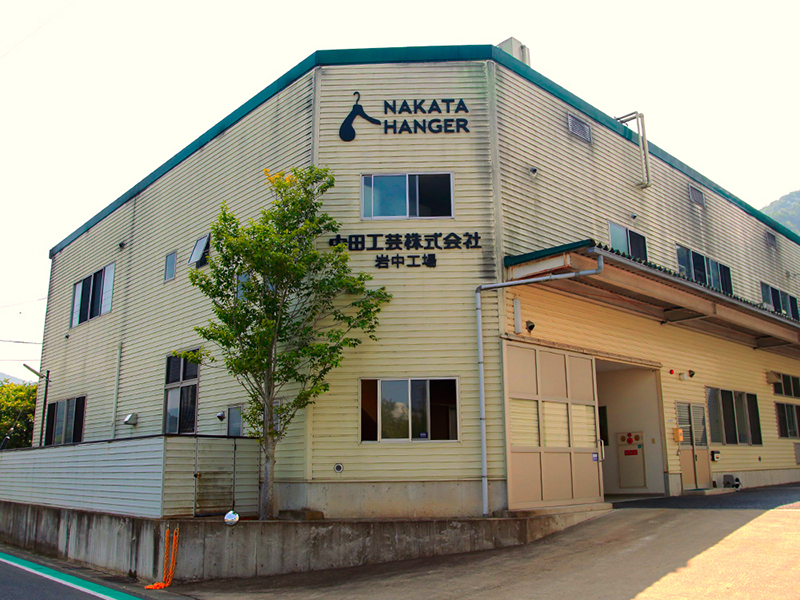
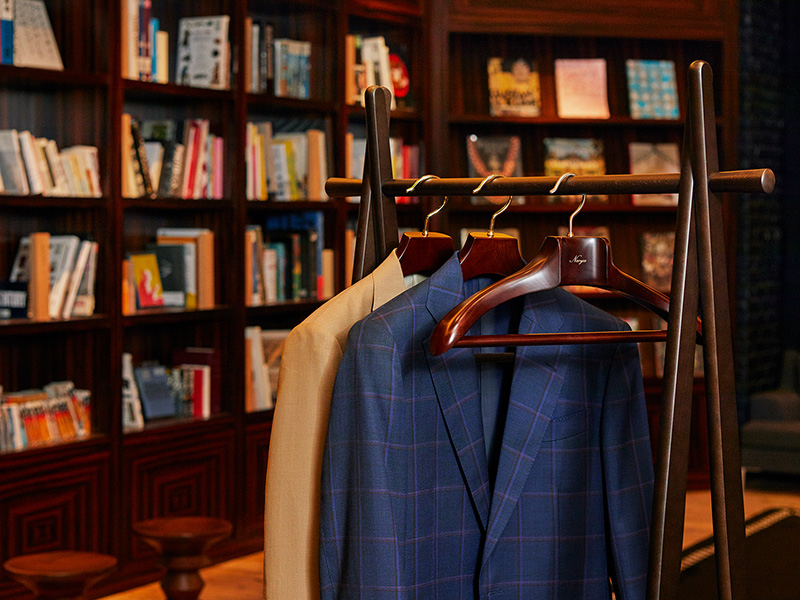
Tour Location
15 minutes' drive from Kounotori Tajima Airport
Availability of Company Tours
Contact Information
Sales Department
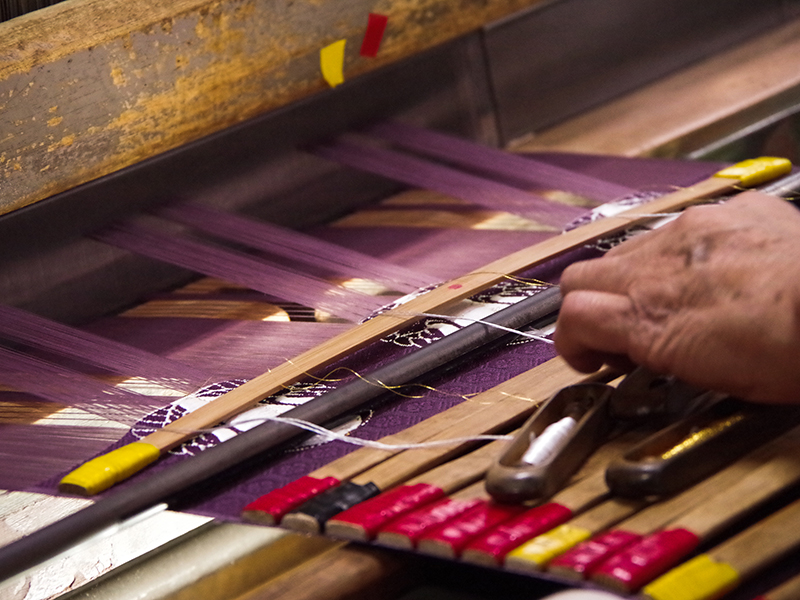
Fukuoka Weaving Co., Ltd.
City of Kyoto
35-7 Isshiki-cho, Jofukuji-dori Itsutsuji Higashi-iru, Kamigyo Ward, Kyoto, Kyoto Prefecture, 602-8471

Traditional Crafts, Artisanship
Fukuoka Weaving Co., Ltd. City of Kyoto https://fukuoka-k.co.jp/en/

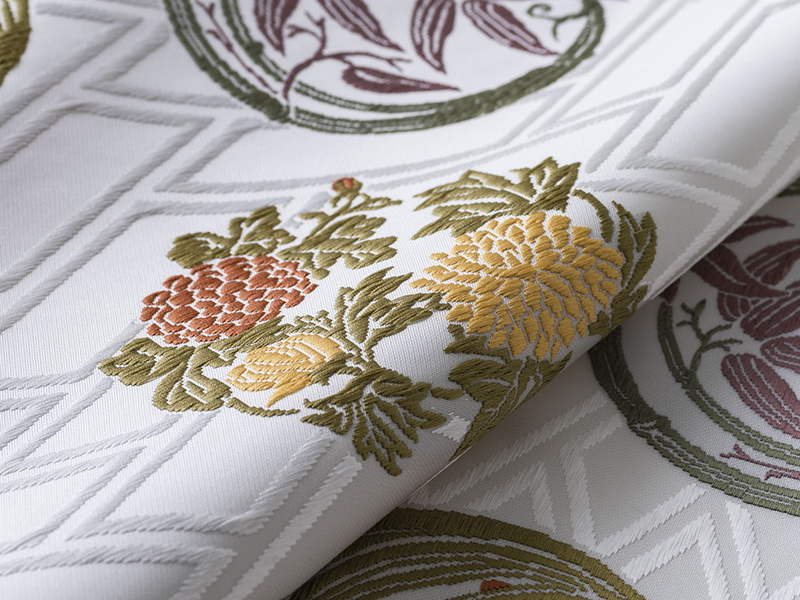
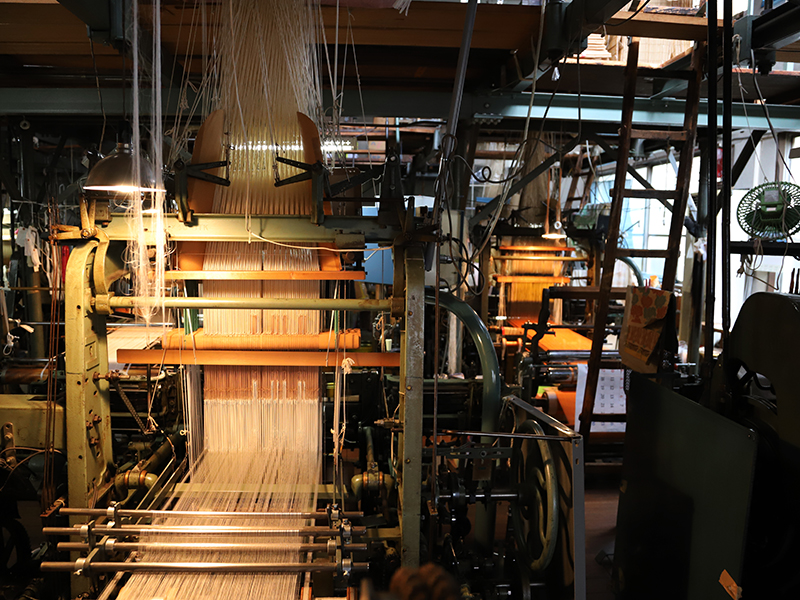
Fukuoka Weaving Co., Ltd. was founded in 1902. Its main business is the production and sales of "obi" kimono belts made from "yusoku" fabrics. The company also produces "juni-hitoe" kimono. In the Heisei era, Fukuoka Weaving started to develop carbon and glass fabrics, which are now used in sports, auto and other sectors. In recent years, it has created fabrics using textiles made from used PET bottles collected in Kyoto Prefecture, and these are used in industries such as apparel and construction.
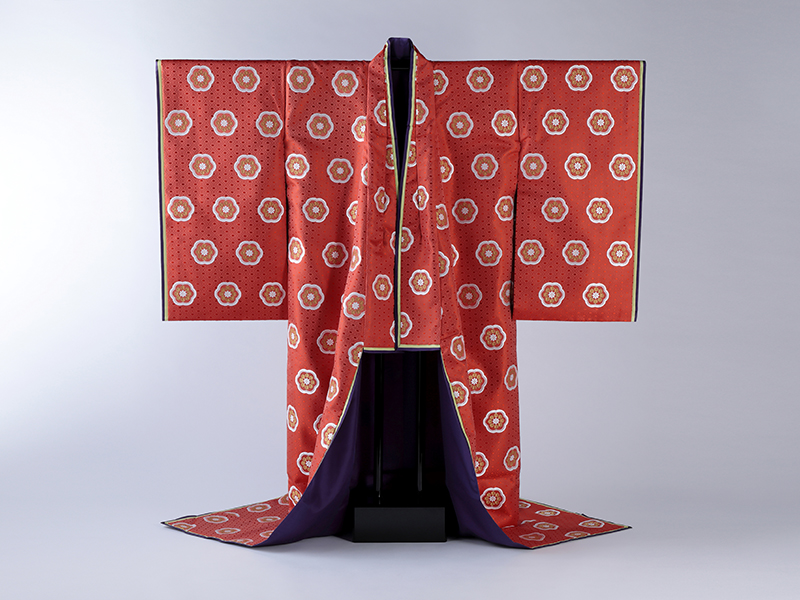
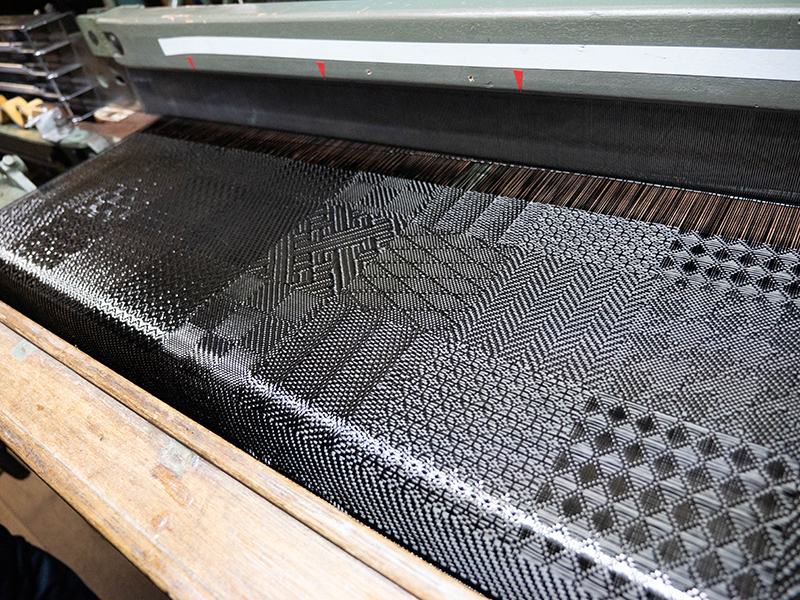
Tour Location
About 10 minutes' drive from Nijyo Station on the JR Sagano Line
About 10 minutes' drive from Imadegawa Station on Kyoto City Subway's Karasuma Line
Availability of Company Tours
Contact Information
President and CEO
Special Note
Tours are limited to up to seven to eight people per group.
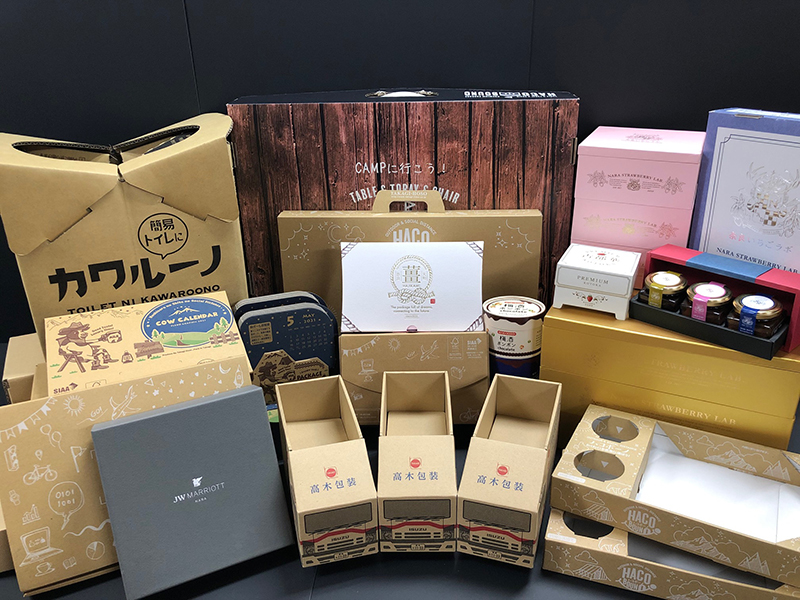
Takagi Hoso Co., Ltd.
Nara Prefecture
74-2 Hajikami, Katsuragi, Nara Prefecture, 639-2122

Traditional Crafts, Artisanship
Takagi Hoso Co., Ltd. Nara Prefecture https://takagi-hoso.com/

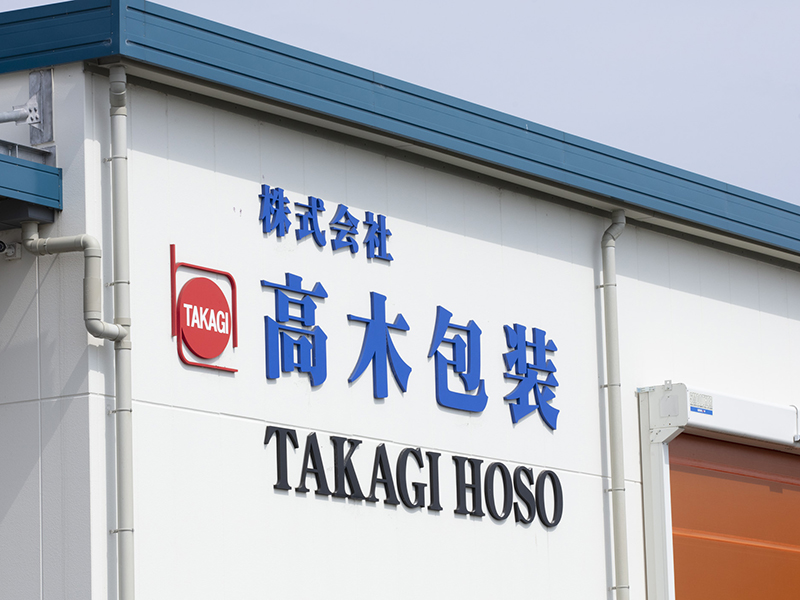
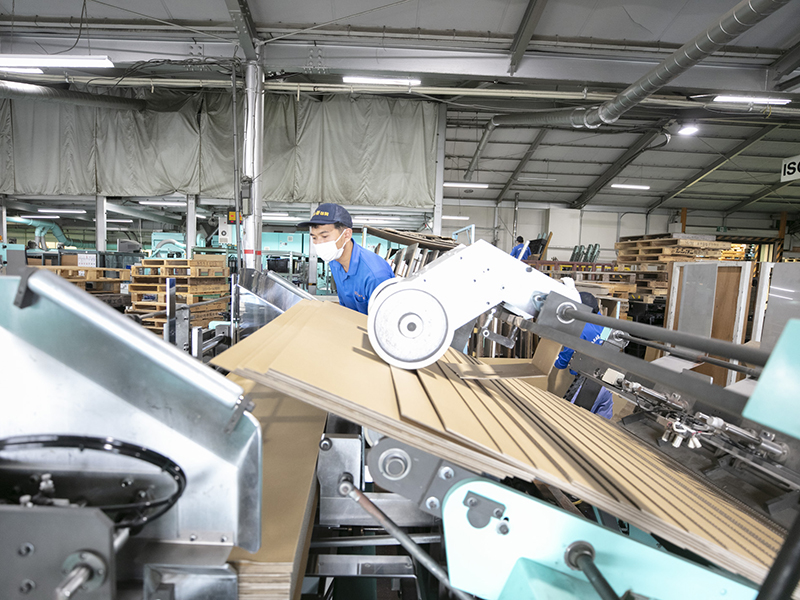
Founded in 1955, Takagi Hoso Co., Ltd. is able to make cardboard cases of all sizes and shapes, amid growing demand for their use as packaging materials for large products such as home appliances and motorcycles. The company is known as the first cardboard case maker in Japan to introduce equipment capable of manufacturing cases measuring up to 1,650 millimeters by 3,500 millimeters. It is also equipped with a high-speed, multi-color production line for smaller cases, with a production speed of up to 350 units per minute. High-performance inspection equipment prevents defective products from getting through and reduces losses caused by printing defects. Takagi Hoso's basic policy is to carry out everything itself, from order receipts to delivery, with employees visiting clients directly to take orders, all processes completed in-house, and products delivered by its own trucks. Subsidiary firm Pack In Takagi designs and sells toilets, beds and novelty goods that are made of cardboard.
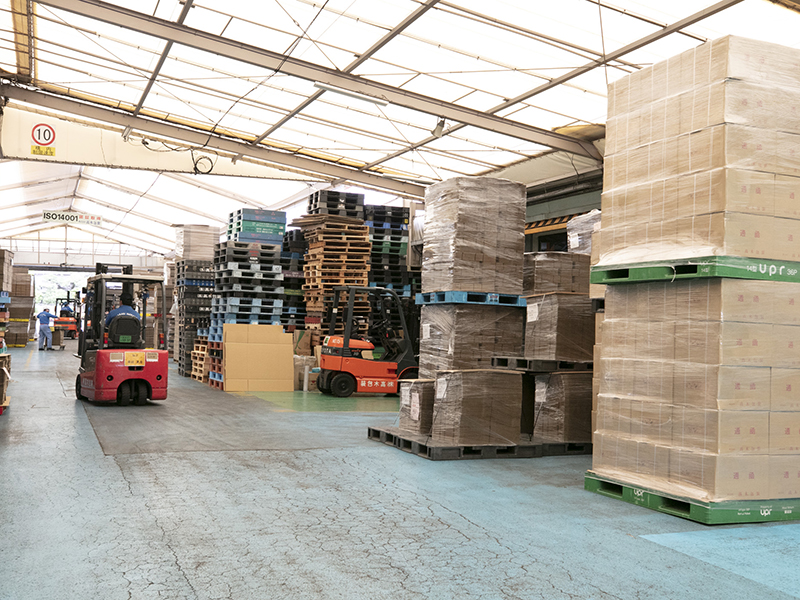
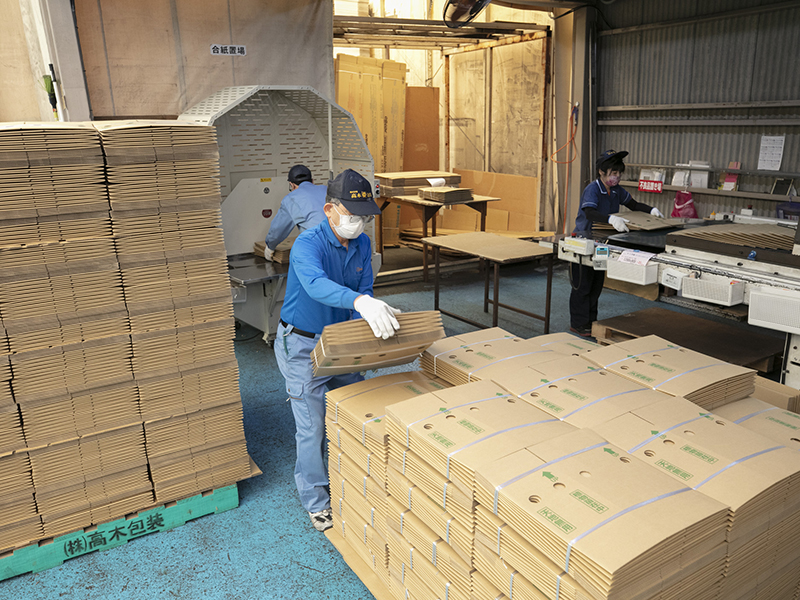
Tour Location
Availability of Company Tours
Contact Information
General Affairs Department, Head Office
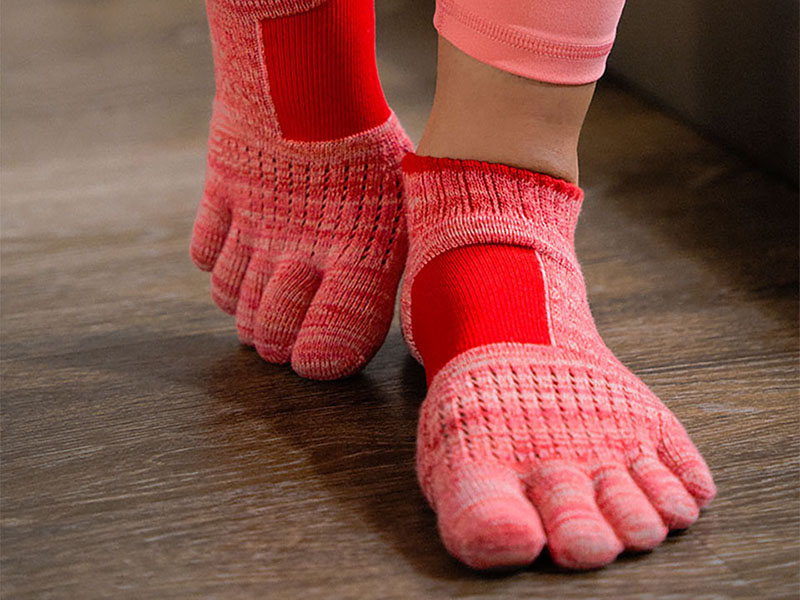
KNITIDO CO., LTD.
Wakayama Prefecture
68-1 Maruda, Shimotsu-cho, Kainan, Wakayama Prefecture, 649-0121

Traditional Crafts, Artisanship
KNITIDO CO., LTD. Wakayama Prefecture https://knitido.co.jp/

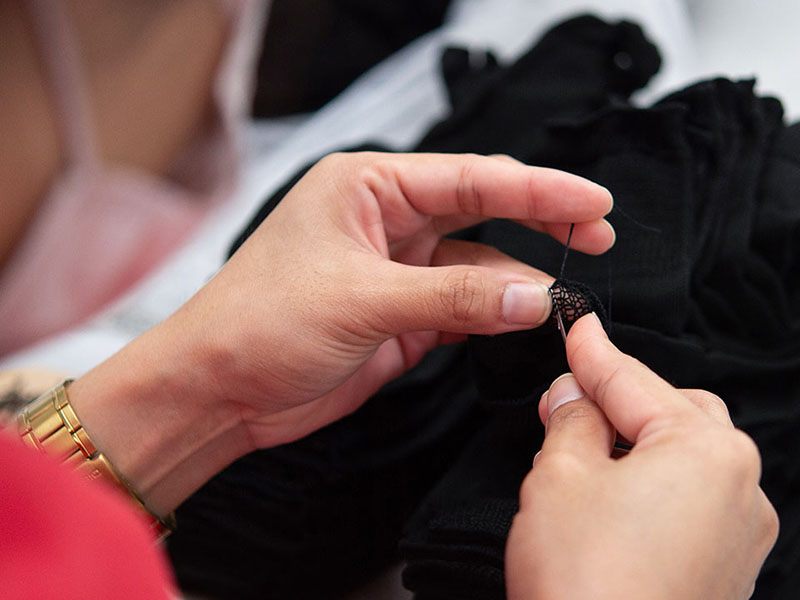
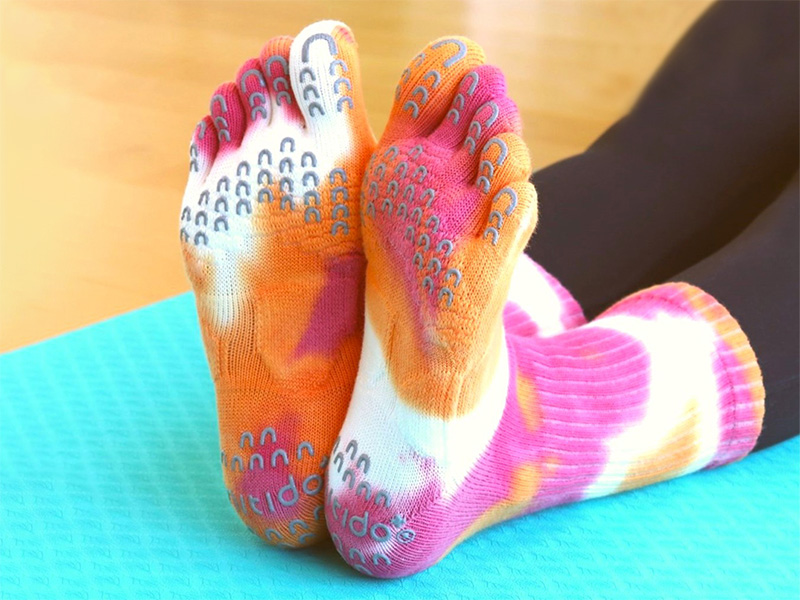
Established in February 1981, KNITIDO CO., LTD. specializes in manufacturing five-toe socks.
Based in Kainan, Wakayama Prefecture, the company focuses on planning, developing, producing and selling five-toe socks and whole-garment knitwear.
As a pioneering manufacturer in the five-toe socks industry, KNITIDO has actively promoted the adoption of its products across Japan since its foundation.
The company has also expanded its operations internationally, with a European sales company, KNITIDO Europe GmbH, headquartered in Berlin, Germany, and a production facility, Haining Xingyuan Knitting Co., Ltd., located in Zhejiang Province, China.
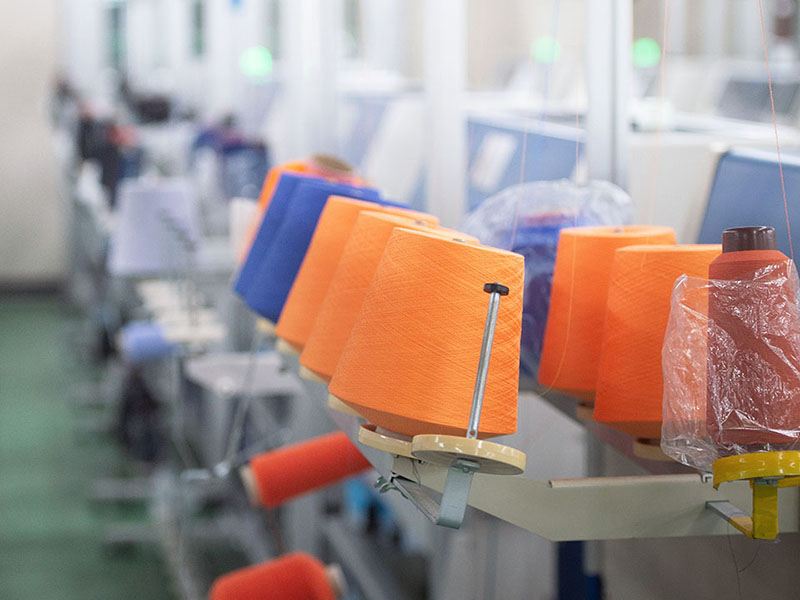
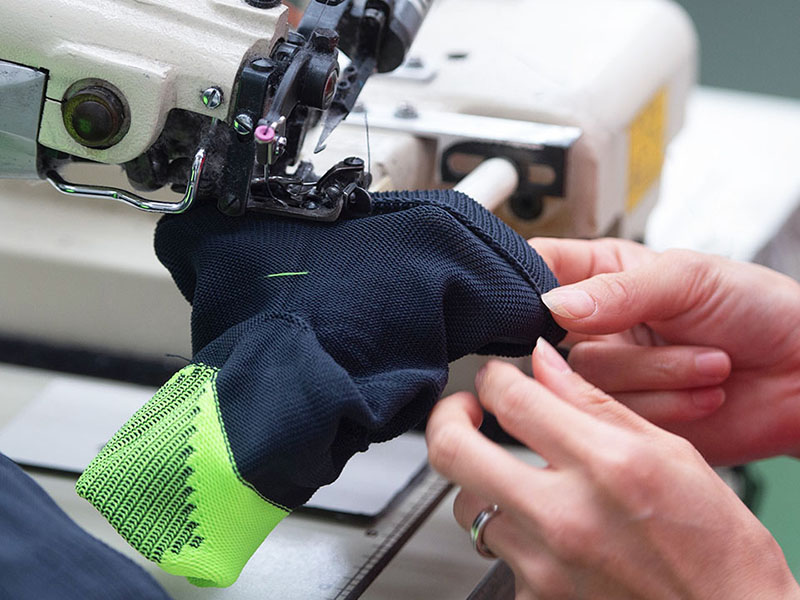
Tour Location
About one hour's drive from Kansai International Airport
Availability of Company Tours
Contact Information
Sales Department

Kuretake Co., Ltd.
Nara Prefecture
7-576 Minamikyobate-cho, Nara, Nara Prefecture 630-8141

Traditional Crafts, Artisanship
Kuretake Co., Ltd. Nara Prefecture https://www.kuretakezig.us/

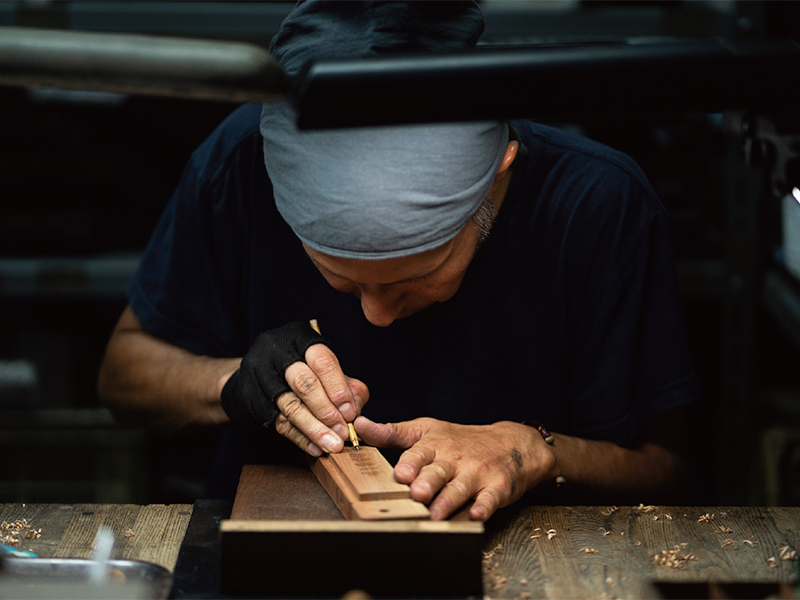
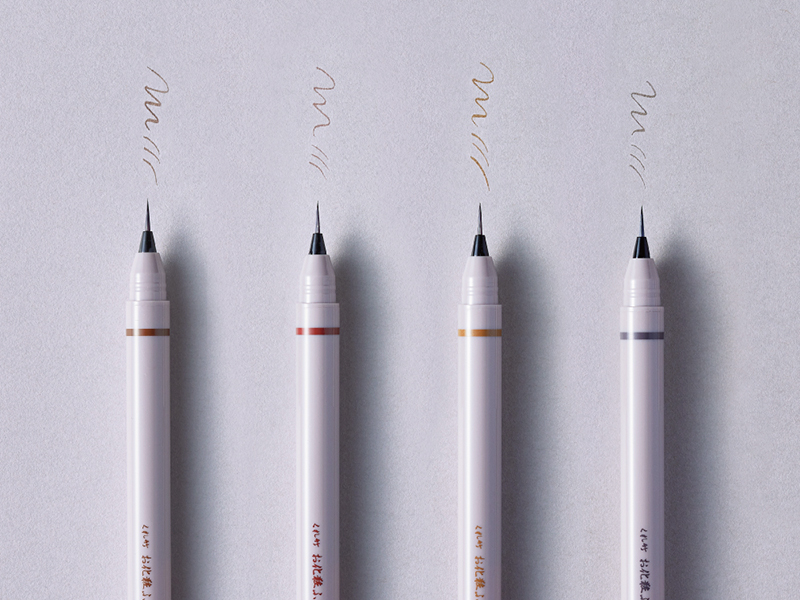
Kuretake Co. was established in 1902 by Narakichi Watatani, a master craftsman of "sumi" ink sticks, as a family business in present-day Nara Prefecture – a region renowned for its traditional ink-making industry. Building on this heritage, Kuretake has continually innovated, introducing pioneering products such as "Bokuteki" liquid sumi ink and brush pens. Over the years, the company has expanded its product lineup to support a wide range of artistic and creative pursuits. It offers felt-tip pens, color markers, calligraphy pens, and traditional art supplies such as "gansai" solid watercolors used in Japanese painting.
In recent years, Kuretake has also entered the cosmetics industry, launching original makeup brush pens that draw on the technical expertise honed through decades of brush pen manufacturing.
Kuretake also engages in extensive product development for industrial applications, including conductive paints that utilize carbon dispersion technology developed through Bokuteki ink manufacturing, as well as liquid snow-melting agents whose main component is carbon black.
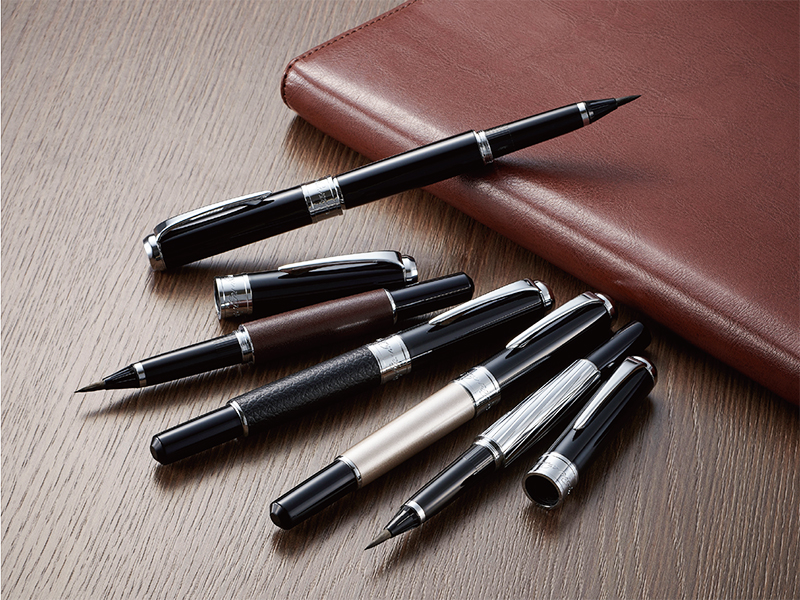
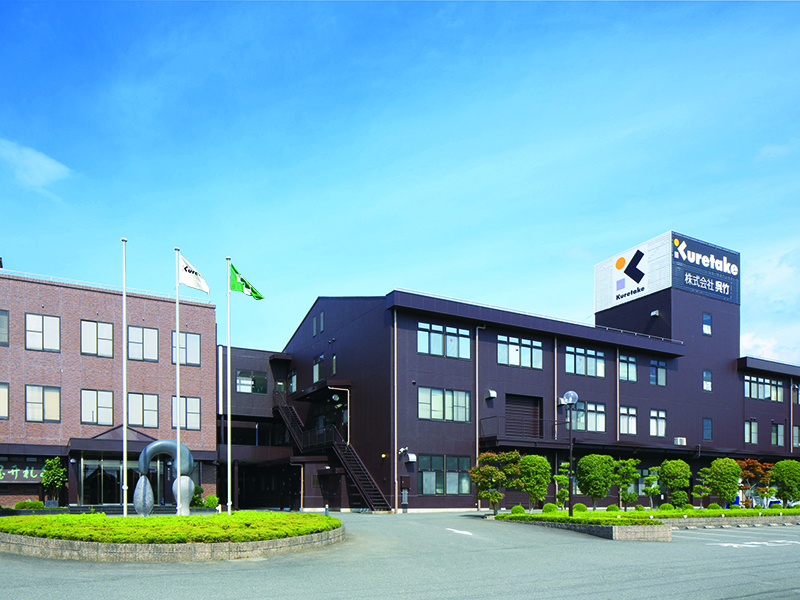
Tour Location
Availability of Company Tours
Contact Information
Administration Office (Public Relations)
Special Note
There are certain conditions that apply to the tour. Please contact us for more information.
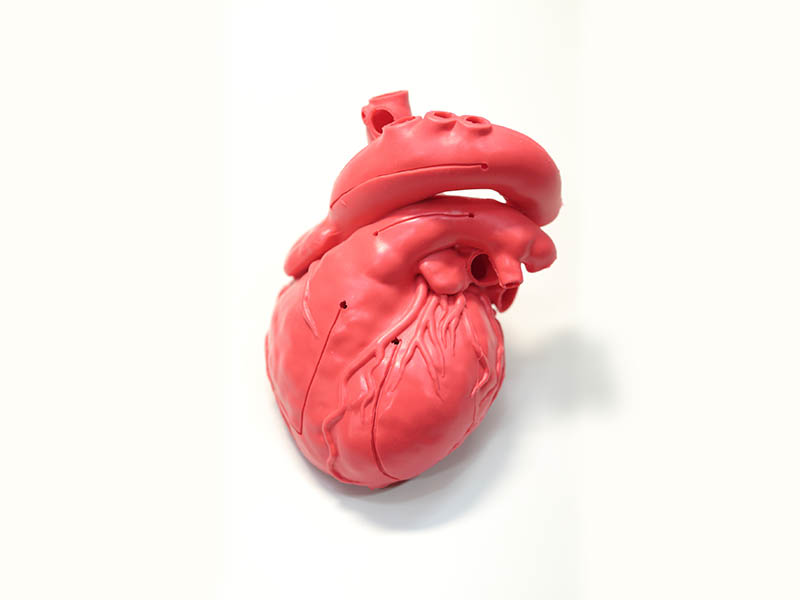
CrossMedical, Inc.
City of Kyoto
57 Minaminekoya-cho, Fushimi Ward, Kyoto, Kyoto Prefecture 612-8379

Traditional Crafts, Artisanship
CrossMedical, Inc. City of Kyoto https://www.xcardio.com/

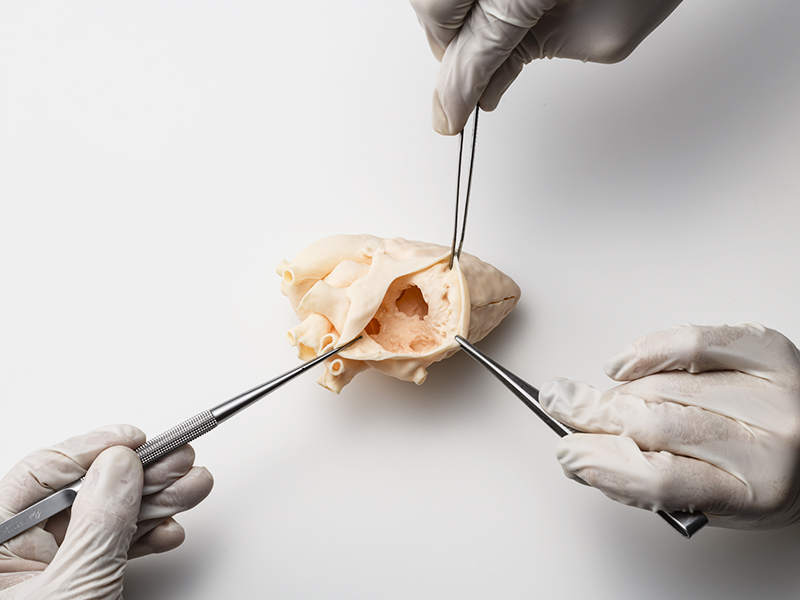

CrossMedical, Inc. is a Kyoto-based leader in the manufacturing and sales of advanced organ simulators. The company specializes in developing educational tools for the medical field and laboratory equipment for medical-device research and development. Its expertise also includes the precise crafting of custom-made 3D organ models by employing biological data such as CT and MRI scans.
Utilizing cutting-edge 3D printing and vacuum casting technologies, CrossMedical produces highly realistic soft organ models that facilitate a deeper understanding of complex pathologies.
The company's "soft life-size 3D heart models" are registered as Class II medical devices, with certification by a private third-party organization accredited by the health minister, and widely used in hospitals across Japan. These innovative models enable physicians to review surgical plans and simulate procedures prior to actual operations.
Developed over more than a decade, the soft life-size 3D heart models are specifically designed to assist in the treatment of patients with congenital heart disease who were born with abnormal heart structures. Fabricated from soft materials that closely mimic the texture and feel of real human tissue, these models allow for realistic incisions and suturing during surgical simulations. Their use is expected to offer a range of benefits, including improved accuracy in preoperative planning and a reduction in surgical risks.
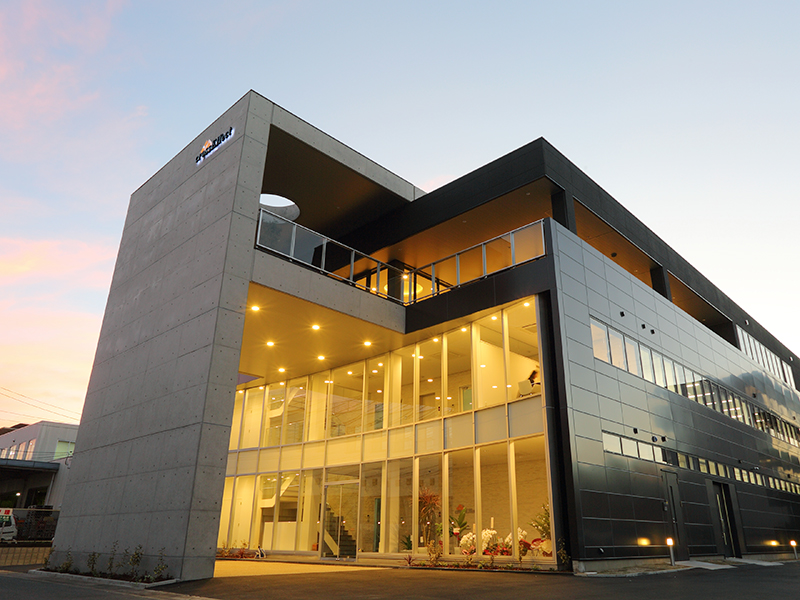
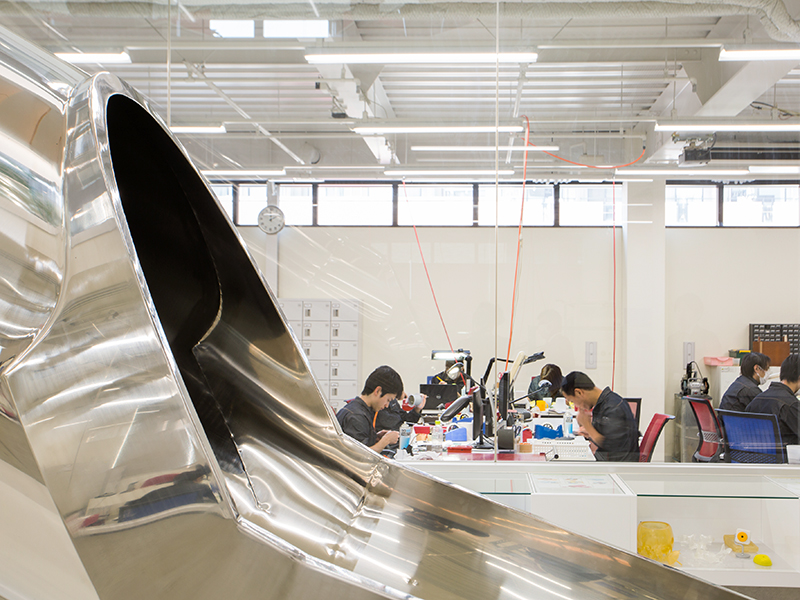
Tour Location
About 8 minutes by taxi from Takeda Station of the Kyoto City Subway's Karasuma Line or from Takeda Station of Kintetsu Railway Co.'s Kyoto Line
About 7 minutes by taxi from Fushimi-momoyama Station of the Keihan Main Line of Keihan Electric Railway Co. or from Momoyamagoryomae Station of Kintetsu Railway Co.'s Kyoto Line
Availability of Company Tours
Contact Information
General Affairs Group
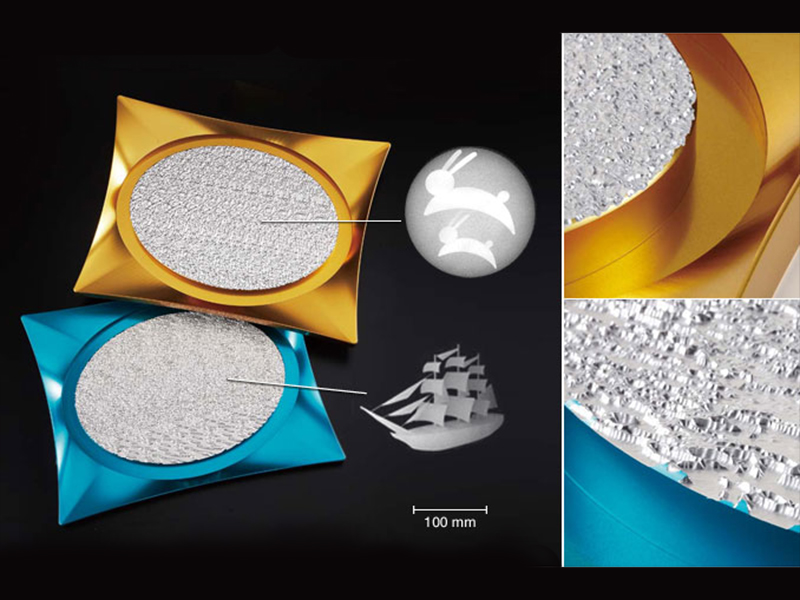
Nango Co.,Ltd.
Kyoto Prefecture
80-36 Shirakawa Kawanoboridani, Uji, Kyoto Prefecture 611-0022

Traditional Crafts, Artisanship
Nango Co.,Ltd. Kyoto Prefecture https://www.nango-kyoto.co.jp/eng/

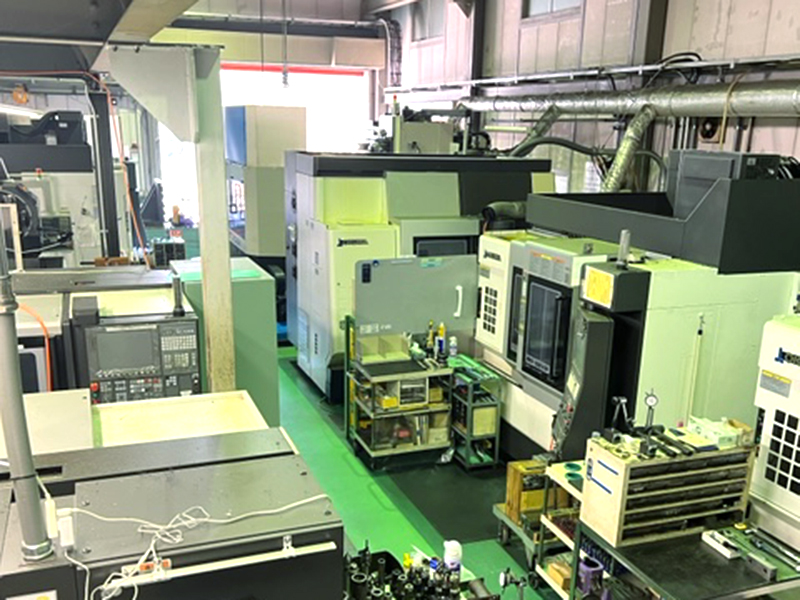
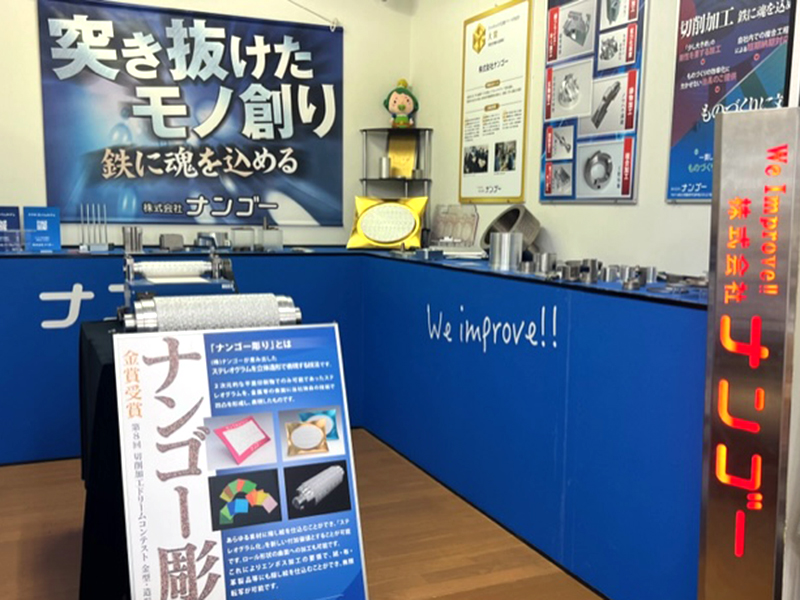
Nango Co. specializes in precision machining for all types of metals to create one-of-a-kind products. It also manufactures a wide range of custom-made devices and labor-saving machines for enhanced efficiency in artisan manufacturing. With a strong focus on machining, design and manufacturing, as well as industrial capabilities, the company responds to customer needs by offering flexibility, innovative solutions and expert consultations.
Nango has also obtained a patent for its proprietary "Nango-Bori" modeling technology, which utilizes advanced metal-cutting techniques to create "stereograms" on thick metal surfaces. This unique form of trick art reveals hidden 3D images or letters that appear to float above aluminum plates when viewers adjust their focus. Traditionally, stereograms could only be produced on printed flat materials such as paper, but Nango-Bori brings this visual experience to metals.
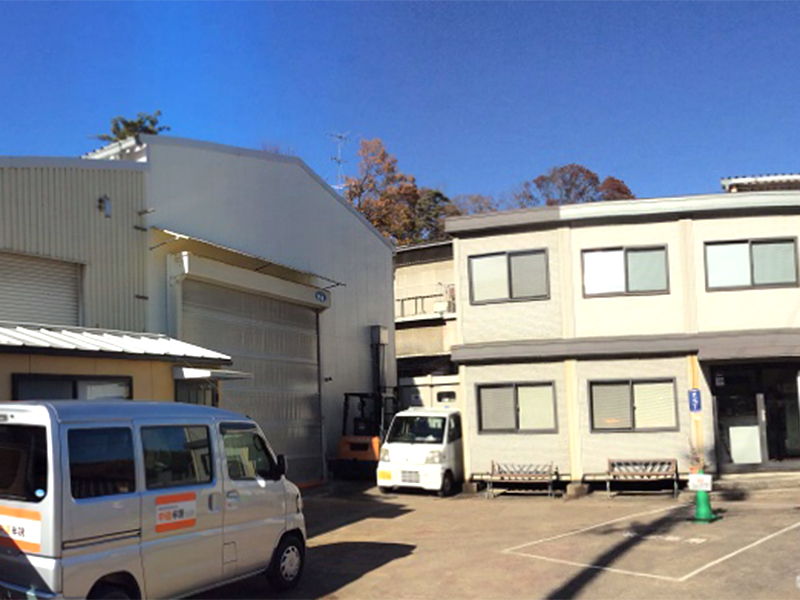
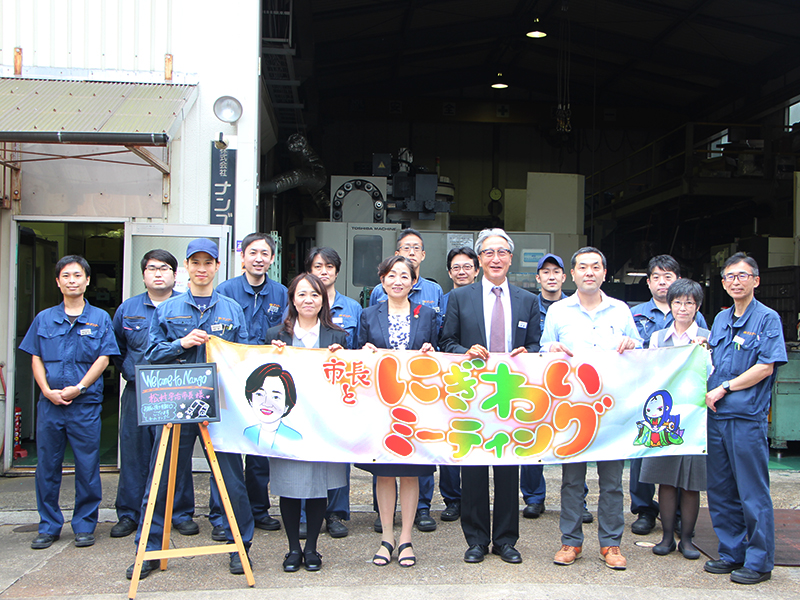
Tour Location
A 2-minute walk from the "Yuyu no Sato" bus stop
Availability of Company Tours
Contact Information
Project Group Office
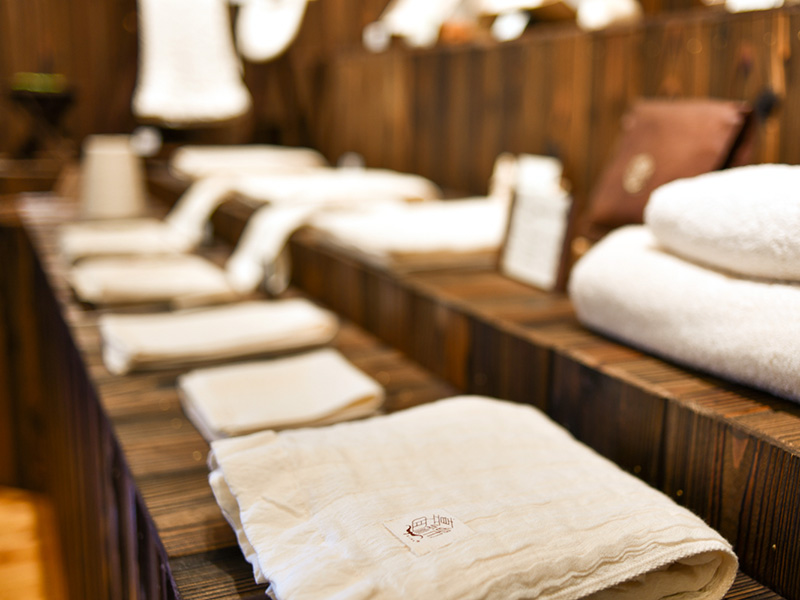
Smileyearth Corporation
Osaka Prefecture
2384 Kaminogo, Izumisano, Osaka Prefecture 598-0024

Traditional Crafts, Artisanship
Smileyearth Corporation Osaka Prefecture https://smileyearth.co.jp/

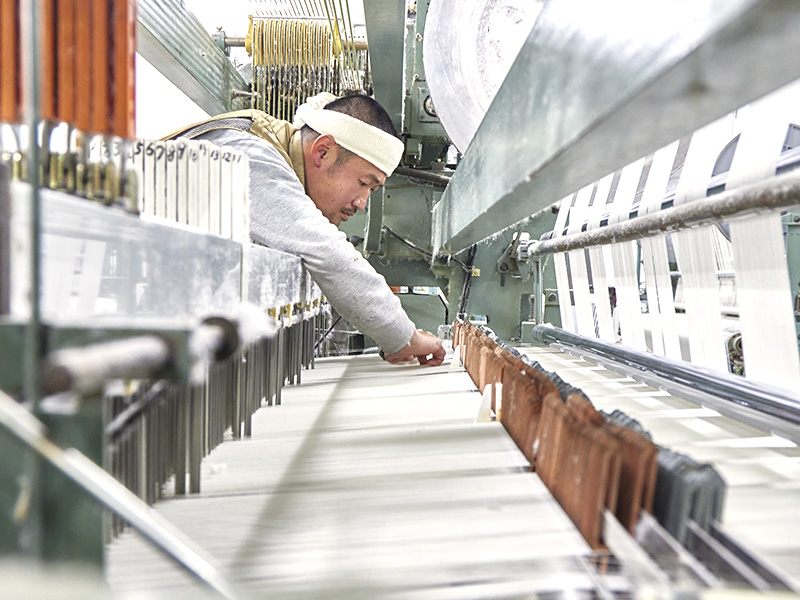
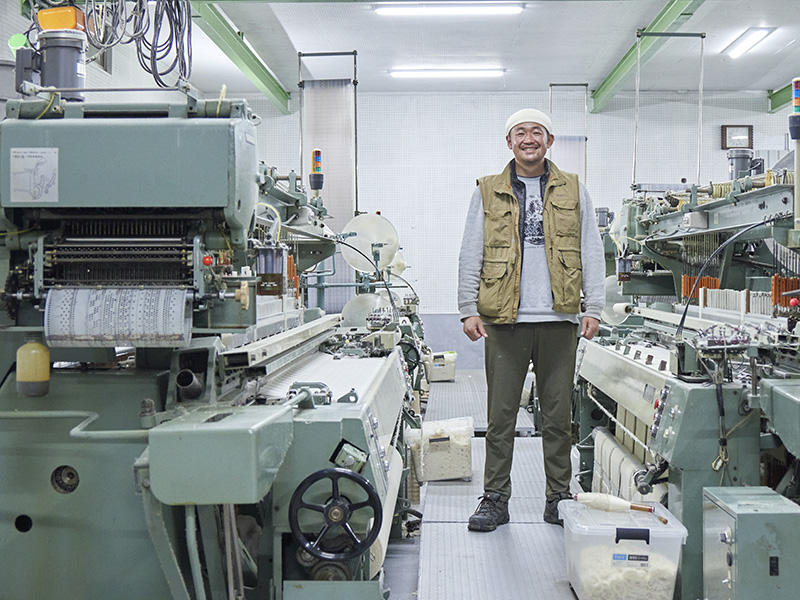
Smileyearth corporation set up a new-generation Nature Towel Factory in Izumisano, the city in Osaka Prefecture known as the birthplace of towel manufacturing in Japan. The company developed a technology that enables towel production with no reliance on chemical agents or fossil fuels, drawing on remorse and lessons from past river pollution and contamination linked to towel production. This breakthrough helped it to receive the prestigious Monodzukuri Nippon Grand Award from the Japanese government for excellence in artisan manufacturing. Visitors are invited to experience towel production in harmony with traditional Japanese culture and the local ecosystem, embodying the concepts of sustainability, resource recycling, climate change action, and decarbonization.
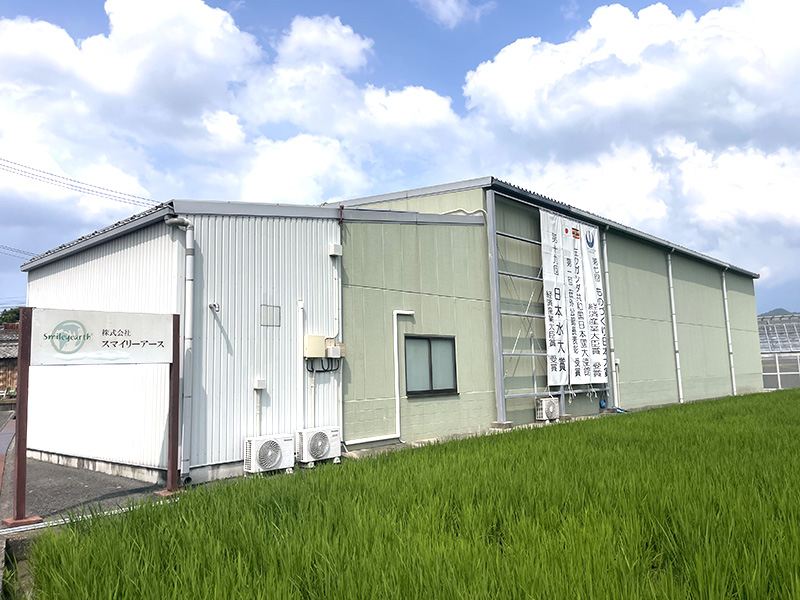
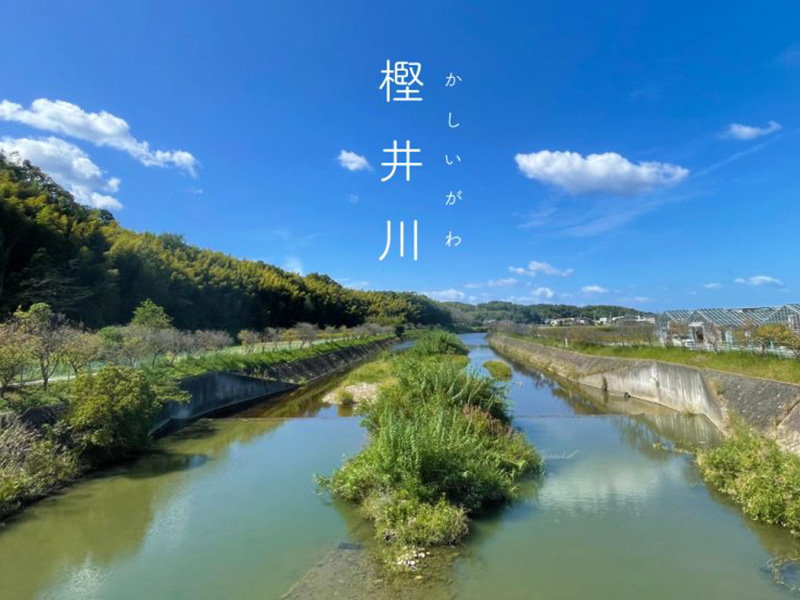
Tour Location
15 minutes by taxi from JR Hineno Station
25 minutes by taxi from Izumisano Station on the Nankai Line
20 minutes by taxi from Hagurazaki Station on the Nankai Line
Availability of Company Tours
Contact Information
President
Special Note
Reservations are required for the tour.